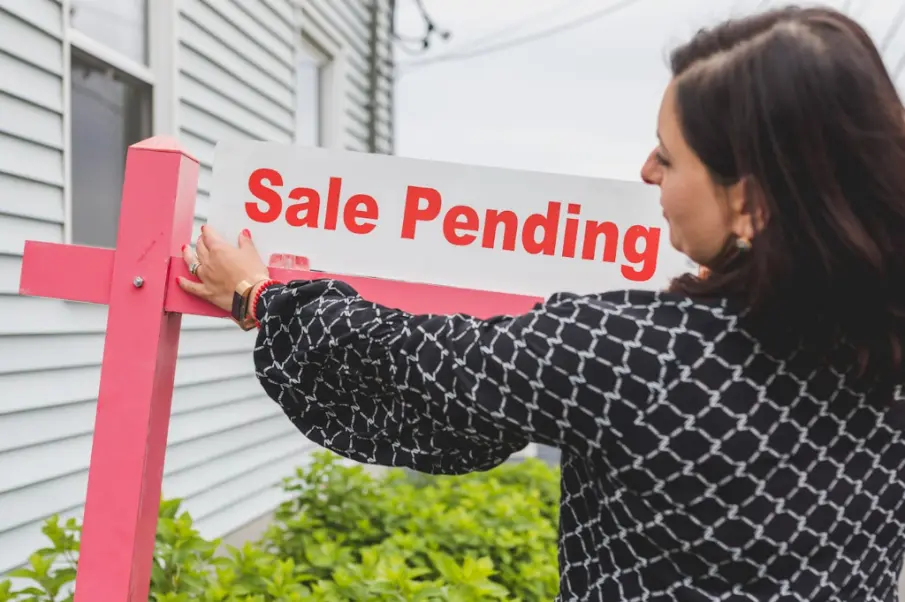Common Home Selling Mistakes and How to Avoid Them
Selling a home is one of the most significant financial decisions people make. While it’s an exciting step, it can also be filled with challenges, especially for first-time sellers. Many homeowners inadvertently make mistakes that can cost them time and money. Understanding these pitfalls and learning how to avoid them is essential for a smooth and profitable selling experience.

Inflated Property Values
One of the most common mistakes sellers make is overpricing their homes. It's tempting to aim high, especially when you've invested time, money, and emotion into the property. However, buyers today are savvy, armed with online tools and market data to compare prices. An overpriced home often sits on the market for too long, leading to reduced interest and the impression that something might be wrong with it. To avoid this mistake, work with a trusted real estate agent to conduct a comparative market analysis (CMA). This analysis will provide an accurate valuation based on similar properties in your area. Setting a competitive price not only attracts more buyers but can also lead to multiple offers, potentially driving up the final sale price.
Neglecting Necessary Repairs and Maintenance
First impressions matter immensely in real estate. A home in disrepair sends a message to potential buyers that the property hasn’t been well cared for, which can be a major turn-off. Even minor issues like leaky faucets, peeling paint, or squeaky doors can detract from a buyer's overall perception. Before listing your home, take time to inspect and address these issues. Consider hiring a professional home inspector to identify hidden problems that might surface during a buyer's inspection. Investing in repairs upfront can save you from price negotiations or losing a deal later. Additionally, staging your home cleaning, decluttering, and adding inviting touches can significantly enhance its appeal.
Ineffective Marketing Strategies
In today’s digital age, effective marketing is critical for attracting buyers. Simply putting a For Sale sign in your yard is not enough. Yet, many sellers still underestimate the importance of professional marketing efforts, which can limit their home's visibility to potential buyers. Quality photos and compelling property descriptions are crucial for online listings, where the majority of buyers begin their search. If your listing lacks these, you might struggle to generate interest. Additionally, partnering with a company that specializes in fast sales, such as Sale My House Fast Dallas, can give you access to marketing tools and a network of potential buyers, accelerating the selling process. Leveraging these resources ensures your property stands out in a competitive market.
Letting Emotions Cloud Decisions
For many, a home is more than just a piece of real estate it’s a place filled with memories. This emotional attachment can sometimes cloud judgment during the selling process. Sellers may overvalue their homes or become overly sensitive to feedback from buyers, which can hinder productive negotiations. The key to avoiding this mistake is to approach the sale with a business mindset. Remember, buyers are not purchasing your memories they are evaluating the home as a product that meets their needs. Detaching emotionally allows you to focus on presenting your home in the best light and negotiating terms that are favorable yet realistic. A trusted real estate agent can act as an intermediary, helping you navigate offers and counteroffers objectively.
Skipping Pre-Sale Preparations
Another mistake that costs sellers is neglecting pre-sale preparations. These include cleaning, staging, and upgrading areas that can boost the home's appeal. Building brands in real estate involves creating a reputation for presenting homes that are attractive and move-in ready, which tends to attract more offers and sell faster than those that feel like a project. Staging doesn’t necessarily mean hiring a professional designer. Small changes, such as rearranging furniture to maximize space, adding fresh flowers, or replacing dated light fixtures, can make a significant difference. Deep cleaning is non-negotiable—nothing turns off a buyer faster than dirt and grime. Lastly, ensure the exterior is as polished as the interior. Curb appeal sets the tone for buyers the moment they arrive.
Underestimating the Closing Process
The final phase of selling a home closing can be complicated, especially for those unfamiliar with the process. Many sellers overlook important steps, such as understanding contract contingencies or preparing the necessary documents, which can lead to delays or even lost deals. To avoid this, stay organized and proactive. Work closely with your real estate agent and attorney to ensure all paperwork is in order. Be ready to address any buyer requests or issues that arise during the home inspection or appraisal. Additionally, set aside funds for closing costs, which typically include agent commissions, taxes, and other fees.
Conclusion
Selling a home is a complex process, and even minor mistakes can have major consequences. By understanding the common pitfalls such as overpricing, neglecting repairs, or ineffective marketing you can take proactive steps to avoid them. Remember, the goal is not just to sell quickly but to secure the best deal for your property. Partnering with experienced professionals and maintaining a strategic, objective approach will make the journey less daunting and more rewarding. When done right, selling your home can mark the start of an exciting new chapter in your life.
More to Read:
Previous Posts:








